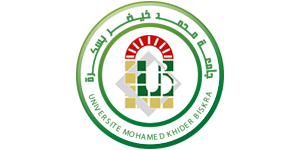Crossing Borders And The Search For An African Selfhood : A Postcolonial Of Aye Kwei Armah’s Why Are You So Blest ? And Ama Ata Aidoo’s Our Sister Killjoy
Résumé: This present work deals with the postcolonial search for an African selfhood through the trope of journeying while subverting the (con)text of the western representational discourse. The chosen corpus of this study is Aye Kwei Armah's Why Are We So Blest? And Ama Ata Aidoo's Our Sister Killjoy . Both works are read from a postcolonial perspective. The crossing undertaken by African protagonists, works as a debunking to the Eurocentric assumptions constructed by the west. The African protagonist is to question the truthfulness and credibility of western assumptions about the classificatory stratification of the world. He, is therefore, to examine the constructed dichotomies set by the west that of the superiority of the west and the inferiority of Africa. One aspect of that debunking is the dissection of the nature of education they receive in the west. In an Althusserian reading, western education is viewed as a strong state apparatus with which the African educated class would be westernized perpetuating, most tragically, the western imperial project in a neocolonial outfit. Fluctuating between essentialism and non-essentialism, the encounters the protagonists had, reveal the internalizations of some constructed perceptions and images inherent in the western representational discourse. The differences that exist between cultures and races are shown to be historical and not biological in nature. The issue of gender, moreover, is so paramount when dealing with the issue of the African identity. Aspiring to recover a healthy and a genuine African self-hood, the African woman should be (re)inscribed in the historicity of the African experience. The issue of language and genre is another challenge for the African author's endeavor to communicate his concerns. Both authors' use of English seems to stem from pragmatic reasons while they are qualified, in a Bhabhian sense, as mimetic writers. The pastiche-like form through the incorporation of orality into the western conventional novel is an ideological, as well as, an aesthetic undertaking performed by the African writer.
Mots-clès:
Nos services universitaires et académiques
Thèses-Algérie vous propose ses divers services d’édition: mise en page, révision, correction, traduction, analyse du plagiat, ainsi que la réalisation des supports graphiques et de présentation (Slideshows).
Obtenez dès à présent et en toute facilité votre devis gratuit et une estimation de la durée de réalisation et bénéficiez d'une qualité de travail irréprochable et d'un temps de livraison imbattable!


